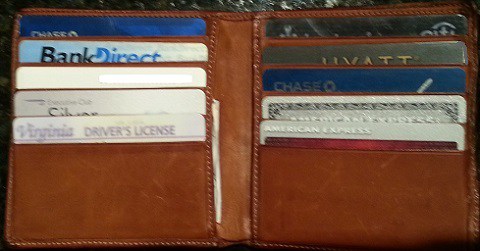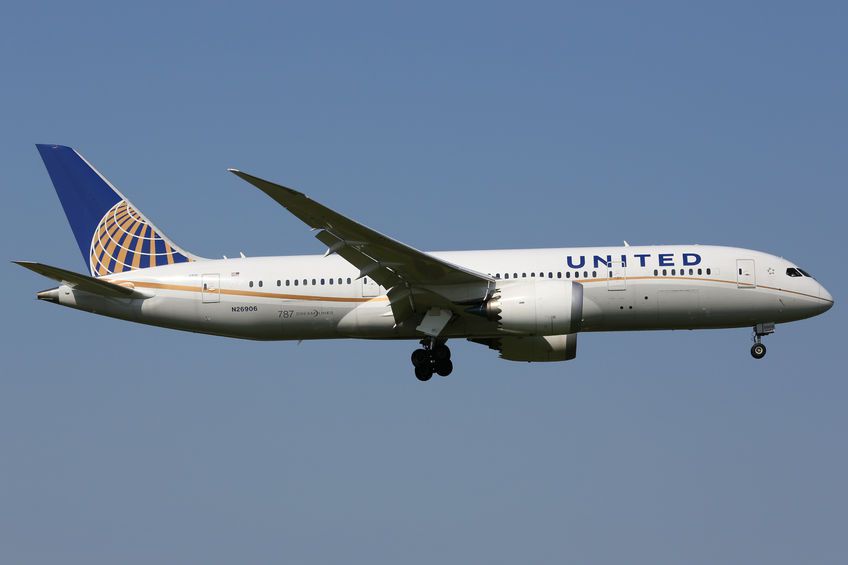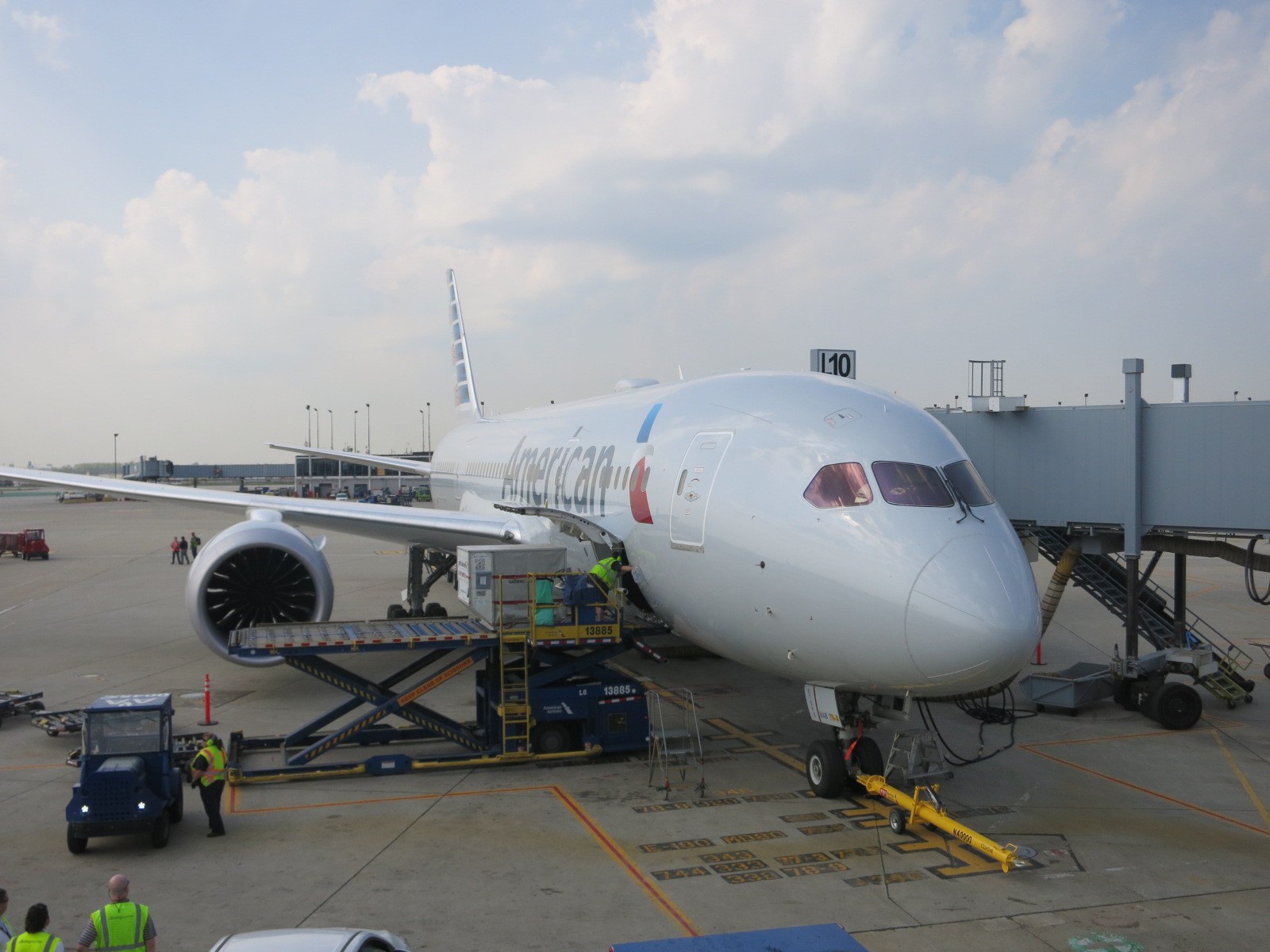One of the controversial things I believe is that the economics of credit cards in the US will change drastically in the coming years.

New payment technologies will compete down credit card interchange rates, making it uneconomic for banks to offer frequent flyer miles as incentives for spending on their cards. Basically that competition will do to credit card mileage earning what the Durbin Amendment did to debit cards.
The Durbin Amendment had real consequences of course, and not just for mileage-earning debit cards. It’s not even fair to call them ‘unintended’ consequences, since they were broadly predicted. Banks don’t offer free checking accounts as often as they used to, since those accounts no longer come with consumer debit card use that generates profits to cover the relationship. That’s led to more consumers outside the banking system. (Small banks like credit unions often still offer free checking without large minimum balances, but the Durbin amendment interchange limits don’t apply to their debit cards the same way.)
In the future the margins on credit card transactions will shrink so there won’t be a role for incentivizing transactions to the same degree, or at the same level of expense. It simply won’t make sense for banks to buy so many miles to reward credit card customers once their margins shrink.
Today in the U.S. times have never been better for co-brand credit card partners. Delta signed a $2 billion a year deal with American Express (about $400 million higher than before), and that set off a new round of agreement renewals at record prices — including Chase re-signing United and Southwest Airlines.

There are at least two high priced deals left as American negotiates its next contract (Citibank and Barclaycard both currently service AAdvantage cards and will be bidding) and then Chase will likely have competition from American Express for the re-up of the Marriott relationship as a result of Marriott’s acquisition of Starwood.

However, that could be the high water mark. There are three possible mechanisms by which interchange fees, and thus the economics of credit card rewards, could change:
- Retail power. Costco showed that large enough retailers with co-brand products could essentially accept credit cards for free. It’s unlikely we’ll see more deals approximating Costco’s, but we could see deals that drive down the cost to process credit card transactions.
- Legal changes. Much like the Durbin Amendment drove down interchange fees for debit cards, we could see legislation drive down interchange for credit cards. It’s a trend that’s gone elsewhere in the world, such as Europe and Australia. (Note that although the Durbin Amendment was sold with the promise of lower prices to consumers, that didn’t happen, it was a payoff to retailers.)
- Competition from new technologies. Whether blockchain or otherwise, even the banks themselves are working on new technologies that process payments less expensively. The banks are competing to put their existing business lines out to pasture; creative destruction. As these technologies succeed and are adopted, lower costs to process payments across new networks will make it no longer economical to buy miles to incentivize transactions through those networks. When I started talking about this a couple of years ago, it wasn’t a new idea for banks but it seemed a complete revelation for loyalty programs. At a co-brand industry conference where I gave the opening keynote last week, this issue was very much at the forefront.
None of this will likely happen right away or even soon, Chase has a 10 year deal to lease Visa’s network that gives them a fixed cost no matter the volume of transactions pushed through that network. So the more spend they drive through, the lower the cost per transaction. Their interchange costs are fixed for some time, though if they’re no longer receiving as much income they’ll still need to shift the terms of incentives.
Doing such a long-term deal, though, suggests Chase doesn’t see the economics in the U.S. changing soon — the way they are in other parts of the world.
Last year Australia cut interchange on premium credit card products. In July of 2017 interchange fees will be capped at about half their current level for all cards.
In Australia merchants generally charge fees to accept credit cards. Those fees were legalized but are now under investigation for being ‘too high’ (higher than the cost to process cards). The government is driving to lower costs and also lower fees charged to consumers.
Europe already moved to limit interchange and the credit card situation is different there.
Now, credit cards weren’t as prevalent there as in the US to begin with. And apparently credit card uptake among millennials is low. Cards are also harder to get in Europe than the U.S.
Airlines are having to get creative since it no longer makes sense for card issuers to simply make a large payment for a huge chunk of miles. Air France, for instance, has an agreement with American Express to share in the interest paid by consumers on their card product in exchange for miles given to consumers.
Even in areas where there’s been no such legal imposition of lower interchange, banks are well aware that the ground could shift beneath them. In some parts of the world co-brand credit card deals are now including provisions that would alter the deal if interchange rates fall.
That hasn’t come to the U.S. yet, but the technological forces that will drive change will affect the U.S. as much as the rest of the world. And that will mean changing the economics and face of credit card co-brand deals. Banks and programs will have to get creative, and probably less lucrative as well.
Frequent flyer miles, and co-brand credit cards, are likely to be very different a decade from now.


Your wrong on the savings to retailers from the Durbin ammendmant. The amendment reduced the outrageousness feed banks were charging to retailers on their debit cards. The outrageous fees still exist but now the processors are collecting the fees instead of the debit card issuers. Guess who owns the processors – the same large banks.
@James debit cards are less expensive for retailers to accept than they used to be [although actual cost varies by network, and by card issuer since interchange caps aren’t applied to smaller financial institutions].
Less credit offers = less pumping cc and Less crappy blog like this on the Internet is a good thing
@Ted thanks for reading my crappy blog! Though I hate to tell you, I was writing this blog back in 2002 even before there were 20,000 mile credit card signup bonuses, so good chance I’ll be still writing even if credit card earning goes away. 😉
Less credit cards, more cash =more money laundering.
@Ted
The blog mist not be that bad when you clicked several times to read it and bothered to type a message.
It is funny that although Gary and Ben (maybe Scott from MV) provide the best value, TPG gets all of the credit and fame. Maybe because he is gay? Or maybe because he has a huge staff, not quite sure.
Don’t underestimate the power of the credit card lobby in the US to keep the status quo for the foreseeable future. Also, James is correct that in many cases the credit card processors are pocketing the savings in Debit fees. In my case I do not get a flat fee for accepting debit cards.
I see this under a different light. More strict privacy regulations force retailers to find creative ways to target and advertise. Credit cards are great way of getting information and advertise. I think as our society and activities change. There will be credit cards or many kinds of clubs for that reason.
This blog and others of its kind has been of great value in creating memories for me and my family at affordable rates. Thanks to Gary and others of his ilk
Would the logical conclusion of your theory not then belie the c.w. to earn and burn? If miles will be harder to generate soon then we should hay while the sun shines.
I think the current economic environment is an oft-overlooked part of the picture. Both airlines and banks are enjoying their best financial performances in nearly a decade, which has big implications on the miles game.
Low energy prices and high passenger loads are leading to huge airline profits, which means the opportunity cost of selling miles is high, and they don’t have the desperate liquidity needs that led to some of the more infamous airline/bank deals of the past.
Banks are far from the halcyon days of circa 2005, but they have a lot of profitable customers, and strong credit card businesses. So the prospects of offering sign-up bonuses valued at $500++ is less compelling.
Although I agree with Gary’s long-term assessments, I think these short/medium-term economic forces will eventually revert and we’ll see the miles situation loosen up a little before it tightens in the long-run
@Stannis I’m not saying miles will be harder to earn overall, just that the mechanism by which credit cards award mile now will likely change. And this is far enough off that there will be multiple devaluations before that happens.
Great article, thanks. It’s always interesting to consider the major factors and competing incentives at play in the airline/banking/consumer credit card bonus/mileage game. Not quite ‘Game of Thrones’ level of interesting, but that’s definitely a good thing. 🙂
Great info Gary, and I think you’re spot on with much of it. However, the lack of free checking options has more to do with the “opt-in” requirements for overdrafts and the low interest rate environment (making deposits far less valuable to banks) more than the reduction in debit fees allowed.
Still, the banking environment will change faster and further than most people envision as finance faces it’s pending “Uber moment”. FinTech will force banks to change the way they do business as they try to stay alive (and relevant).
You are right about one thing, Gary — 10 years from now everything will be different, same as like what happened 10 years ago. Only different, of course. But Chase just made a 10 year bet that things won’t be too much different. In other words, the sky may seem pretty close but that doesn’t mean it’s falling
One other thought:
As you point out, there are some avenues by which the banks could be forced out of the points/miles picture, however based on how much value frequent flyer programs have created for the airlines, it seems like they will work hard to keep those programs alive.
Although I wasn’t paying attention ~20 years ago, I assume most people had no idea how intertwined banks would become in the points/miles ecosystem. If you believe we’re reaching the peak of the banks’ involvement, the question is what other industries will the airlines pull in to take the banks’ place and incentivize consumer behavior by issuing points/miles?